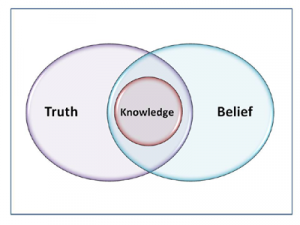
I get emails and messages every week from people complaining about their doctor. I get very similar stories each time.
“I want to know nutritional strategies to help my condition but all they do is recommend is a stupid low fat diet.”
“I told them I don’t want medications and all they recommend is drugs.”
“They told me if I don’t get my kid vaccinated, they will kick me out of their office.”
As much as I sympathize with these complaints, it’s not really the doctor’s fault. As the consumer, you have to do some homework about that doctor you are trying to develop a relationship with more than just looking up if they are covered by your insurance.
There’s a lot of doctors that are covered by your insurance that will do you far more harm than help. After all, our healthcare system is the 3rd leading cause of death in our country.
Your insurance has covered everything that hasn’t worked for you so far. What makes you think using your insurance has anything to do with your health outcomes? Your attitude, your diet, your sleep, your physical activity, your environment, your stress levels are all things that get you better. And guess what? None of those are covered by your insurance. No wonder you’re sick. – Dr. Sachin Patel
You don’t go to a Muslim mosque and get pissed because they didn’t talk about Jesus. You don’t watch an R rated movie and get complain because there was too much violence and profanity. So why do you get frustrated stepping into an MDs office and them wanting to prescribe you drugs or give you horrible nutrition and lifestyle advice?
Contradictions lead to destruction. The contradiction at play with these destructions is your health outcomes. We see this pretty evidently with the results of our healthcare system. Lots of access and interventions, not much health production.
If you take anything away from this post, just remember, ‘contradictions lead to destructions.’ To avoid destruction, you have to clear up contradictions. To clear up those contradictions, you need to assess your own philosophy and see if that matches the philosophy of your doctor. If you try and engage this conversation with your doctor and they don’t have time, that probably answers your question.
I’m not talking about emergency type settings. If you show up to the ER with a broken leg, you’re both pretty much on the same page of getting the leg fixed as quick as possible with the least amount of pain possible and never seeing each other again. Set the leg and let me go heal.
It’s the doctors that you are going to see multiple times over a long period of time that you need to make sure your philosophies match. How do you know what you or your doctor’s philosophy is? There are 5 branches you need to assess.
I would start by assessing these in yourself first. If you don’t know your own philosophy, you won’t be able to spot whether someone shares the same one as you or opposes it.
These branches were developed by Ayn Rand and then introduced to me by a distant mentor, Dr. Patrick Gentempo. Hopefully I can adapt them to real life decision making in your journey of finding the right doctor.
The 5 branches of philosophy are in order of sequential importance.
1. Metaphysics
2. Epistemology
3. Ethics
4. Politics
5. Aesthetics
Metaphysics
 Metaphysics gets a bad reputation since it’s tied to mysticism and hoo hoo spiritual practices. Don’t be afraid of metaphysics. Metaphysics is merely ‘your view of the nature of reality.’
Metaphysics gets a bad reputation since it’s tied to mysticism and hoo hoo spiritual practices. Don’t be afraid of metaphysics. Metaphysics is merely ‘your view of the nature of reality.’
How does this apply to finding the right doctor? You can ask your doctor one simple, profound question and you will know without a shadow of a doubt what their metaphysical view (their view of the nature of reality) is concerning how they are going to treat your family and what recommendations they will give.
The key question to ask your doctor: “why do people get sick?”
The great majority of doctors and policy makers are going to say bad bugs, bad genes, bad luck, and lack of insurance. The treatment that follows is usually an antibiotic anytime you want one, a host of pharmaceuticals that try and change gene expression, and an encouraging statement of ‘you’re just going to have to live with it.’
My answer would look something like ‘not enough good bugs, deficient and toxic Epi-Genetics, and poor choices.’ The treatment that usually follows is a education and lifestyle changes to how you eat, move, and think.
The nature of my reality is that the human life form is a self-healing, self-regulating organism. In order to maintain self healing, self-regulating abilities, you have to provide the human life form with what it requires and avoid what is harmful. In other words, you need to provide sufficiency and purity in all aspects of life, physical, chemical, emotional, social, and environmental to maintain optimal self-healing, self-regulating abilities.
The only possible way to do that is through lifestyle choices. There’s no drug that can create purity and sufficiency. The best outcome a drug has is to numb you. They make you feel better as you continue to decline. If I have a broken leg, I want to be numb. If I have high blood pressure, I don’t want to be numb, I want it fixed.
The real world application of this is in full swing in the media right now with the measles hysteria. The media’s metaphysical view is that germs cause disease and we are all inherently weak and therefore we need to vaccinate to make up for a defective immune system. We aren’t capable of defending against a virus like the measles or the flu so everyone is urged to get a shot. And anyone that questions it gets labeled a quack or unscientific.
I look at it differently. Do rats cause garbage or does garbage cause rats? The people that have been affected by things like the flu, pneumonia, and measles are people that already have weak immune systems. You can’t strengthen their immune system by altering the immune system of everyone around them. Everyone around the weak person is still a carrier of the ‘bad bug.’ The stronger a person is (the more pure and sufficient their lifestyle choices), the better ability to fight outward attacks. Let’s support the body instead of trying to ‘fight’ a disease.
Epistemology
 Epistemology is the theory of knowledge, especially with regards to its methods, validity, and scope. This is where the term ‘science’ gets thrown around. The problem with science is that it’s open to interpretation depending on what questions are trying to be addressed. The validation of the scientific study greatly depends on the interpretation of its data as well as the financial ties it has to the outcome.
Epistemology is the theory of knowledge, especially with regards to its methods, validity, and scope. This is where the term ‘science’ gets thrown around. The problem with science is that it’s open to interpretation depending on what questions are trying to be addressed. The validation of the scientific study greatly depends on the interpretation of its data as well as the financial ties it has to the outcome.
You will see this with the flu shot reporting.
If you look at the history of flu vaccine rates, in 1980 only about 15% of the population was getting a flu shot. Today more than 65% of the population gets a flu shot. What has happened to flu related mortality in the elderly since 1980? Oh, it’s increased (at least reported that way).
Then why does flu shot bullying occur? Dogma, not science.
When new cohort studies occur that don’t adjust for ‘frailty selection bias’ they conclude that there’s little to no mortality benefit for the elderly to get a flu vaccine. When you add the frail people that don’t get the shot back into the study results, there’s no benefit at all. There’s no reduction in flu cases, reduction in flu deaths, nor any reduction in flu-related deaths.
The paradox is that despite no decline in the elderly as vaccine coverage quadrupled, the vaccine gets reported as reducing half of ALL winter deaths. Check this out from this analysis of cohort studies. This is from the American Journal of Epidemiology titled ‘Influenza Vaccination and Mortality: Differentiating Vaccine Effects from Bias.‘
“We found that flu shots reduced all-cause mortality among elderly Kaiser Permanente members by 4.6% during 9 laboratory defined flu seasons in Northern California. Other researchers have reported that flu shots reduce mortality by much greater amounts. In a meta-analysis of results from 20 cohort and case-control studies. Voordouw et al. (6) found that flu shots reduce winter deaths by 50%, on average; and in a more recent study, Nichol et al. (19) reported a 48% reduction in all-cause mortality among the elderly during flu season. However, Simonsen et al. (11, 12, 20) found that excess mortality attributable to influenza has only been 5%–10% on average during flu seasons in the past several decades. They argued that flu shots could not possibly have prevented more deaths than the 5%–10% of deaths that were flu-related (11–13). Our estimate of excess mortality during flu season was 7.8%, which is consistent with Simonsen et al.’s nationwide estimate but lower than estimates made by others (21–23).
This excess mortality of 7.8% is what we found in a population with over 60% vaccine coverage. Our findings suggest that had none of the elderly been vaccinated, excess mortality during flu season would have averaged about 9.8%. We infer that our 4.6% VE estimate amounts to a 47% reduction (4.6/9.8 = 47%) in the number of flu attributable deaths that would have occurred had none of the elderly been vaccinated.”
So these researchers are saying that the other guys reporting a 50% and 48% reduction in ALL deaths during the winter by just getting a flu shot is ridiculous and exaggerated…it’s only a 47% reduction in deaths. Remember, that all flu shot studies are measured against reducing ALL deaths during the winter. These people are saying that by getting a flu shot, you reduce your chances of dying from frostbite, dogbite, drowning, heart disease, cancer, diabetes, and Al Qaeda attacks. ALL CAUSE means all imaginable causes of death.
These guys also looked at 9 flu seasons of people enrolled in Kaiser in Nor Cal since they can track who got the flu vaccine or not and said over those 9 years, we can estimate the vaccine was only 4.6% effective. They also so that worse case scenario is that 7.8% (midpoint of the 5-10%) of deaths in a flu season can be attributed to flu deaths. And if no one got a flu shot, that would only raise to 9.8% of deaths being attributed to the flu.
Where the interpretation gets absolutely ridiculous is how they report the data. You or I would use elementary school math to say that if no one got a flu shot, there may be a 2% increase in deaths from the flu (9.8% – 7.8%). What they do to back up their ridiculous claim of 47% reduction in death rates of anything (falling off a mountain, killer bee attacks, botched surgery) by taking their measly 4.6% VE (Vaccine Effectiveness) number averaged over 9 years of people getting the flu shot and divide that into 9.8% (the estimated worst case scenario of deaths related to the flu in a season if no one gets a shot) to say that if you get a flu shot, you decrease your chance of dying from ANYTHING by 47%.
Lipitor is another great example.
The interpretation of the data states a 50% reduction in heart attacks. The actual data says a 1% reduction in heart attacks. How can the interpretation be so different than the actual data? The messenger has something to gain.
In Lipitor, for every 100 people that took Lipitor in the study, 2 people had a heart attack. I might add, there was also a change in diet. For every 100 people that took the placebo, 3 people had a heart attack.
You and I would probably interpret that only 1 in 100 people benefit from Lipitor. Might I add again that it took 3 1/2 years to see those ‘benefits?’ How it gets interpreted and reported to you, your doctor, and other media outlets is that 3 minus 2 equals 1. 1 is half of 2. Since 1 is half of 2 and 1 was the difference between the Lipitor and Placebo heart attack groups, they conclude that 1 is equal to a 50% (half) reduction in heart attacks. Is that sketchy or sketchy?
With millions upon millions of people on Lipitor, has the incidence of heart disease and heart attacks diminished? Not at all. By interpreting the data correctly, this wouldn’t be a surprise. If the drug company’s interpretation was correct, heart disease would have been reduced 50% over the past 20 years. Instead, it still climbs.
‘Science,’ especially when it comes to mainstream healthcare, is locked into finding a direct event cause and if there is no direct event cause, then the possibility of that factor affecting or contributing to that condition gets thrown out of the window.
If the metaphysical view of why someone gets sick is because of bad bugs, bad genes, or bad luck, then their epistemological view of how do you know’ has to be summed up in a direct cause and event. This is why the vaccine-autism debate is so heated. Because there are no randomized controlled, double blinded studies that prove the MMR vaccine caused autism, it gets thrown out the window by the pharmaceutical subsidiary we call the FDA.
Many parents would vehemently argue that point after seeing their child go into regressive autism within hours after an MMR shot.
Due to my metaphysical view that the body is a self-healing, self-regulating organism that requires purity and sufficiency to maintain that ability, I can’t throw out the possibility of a vaccine-autism link. But in that same breath, I also can’t thrown out many other factors that move a human life form away from purity and sufficiency into a state that opens up the autism doors.
I’ve yet to meet a parent with an autistic child that also didn’t have other complications prior to the final vaccine straw that broke the camel’s back. Those other insults could be a host of things. 50% of pregnancies are unplanned and those parents don’t often know until 5-8 weeks post conception. By 4 weeks, the notochord (primitive nervous system) has developed. You can’t go back and add missing blocks by starting to take a pre-natal vitamin at 8 weeks.
Other insults can be maternal stress levels during pregnancy, how many ultrasounds were done, if mom is thyroid deficient, if there is presence of MTHFR mutations or other SNPs (Single Nucleotide Polymorphisms), inflammation, glycation, adrenal imbalances, auto-immunity, a high glycemic diet, plastics exposure, VOC exposure, and much more. These are all while in utero. The kid’s not even breathing on his own yet.
Then you can add a traumatic birth process from ptosin, epidurals, forceps, suction, and/or C-SECTION. What about separating mom and baby right after birth? A couple months down the road, food, that is primarily sugar, wheat, and dairy based is introduced months before a kid should even be trying solids in a system that isn’t mature to handle food with the types of food humans don’t handle well in the first place.
Throw in an ear infection or 2 with a couple rounds of antibiotics, Tylenol for teething, and steroid creams for skin problems that rip apart the gut. Don’t forget about all the other vaccines from birth to about 18 months that contain adjuvants to create an inflammatory response and then it’s all sent over the edge with the MMR at 18 months. It’s this last straw that gets blamed.
Because there is no direct cause, double blinded study that recreates all those insults, they get greatly ignored and ridiculed and you’re kicked out of your pediatrician’s office for questioning ‘science.’
I always go back to a couple questions. ‘Is this intervention producing health?‘ With the addition of Lipitor, did this make for a healthier population? Not a chance. We may have lower cholesterol numbers but we are sicker than ever.
I also ask, ‘Is the condition we’re treating because a lack of the intervention?’ Does heart disease happen because the body lacks statins? Do thyroid conditions happen because of a deficiency in Synthroid? Is PCOS a result of a lack of Metformin? You get the picture. Then how can the body improve by putting those interventions into system?
Your quality of life and health depend on the quality of your questions. it depends on your definition of ‘better.’ Better could be less symptoms or better could be moving towards purity and sufficiency. Your definition of better will be based on your metaphysical view of why people get sick.
Ethics
 Ethics is the branch that deals with the nature and purpose of human behavior. It provides a code of values to guide a person’s choices and actions. It centers around the concept of value, which is anything an entity strives to gain or keep. This is where the debate happens over profits and the one percenters.
Ethics is the branch that deals with the nature and purpose of human behavior. It provides a code of values to guide a person’s choices and actions. It centers around the concept of value, which is anything an entity strives to gain or keep. This is where the debate happens over profits and the one percenters.
Morality is that code of ethics. A valid moral code must address human’s need long range, conceptualizing the requirements of human survival into an integrated, hierarchically structured, non-contradictory system of reliable principles. Such a code must then hold human life as its standard of value.
It’s a little deeper than don’t lie, don’t cheat, don’t steal though those are good starts in picking a doctor or supporting an investment strategy. This is why I don’t invest in pharmaceutical company stock. How many of those companies have been fined for criminal activity? How many of those companies share an opposing metaphysical view of health from me? All of them.
You can break this down into egoism vs. altruism. Egoism being that each person’s primary moral obligation is his own self well being. Altruism being that a person’s primary moral obligation is to serve some entity other than himself at the sacrifice of his own welfare. The irony of this in the 1 percenter argument is that the 99% want the 1% to be altruistic at the gain of the 99%. You can’t force altruism to feed your own egoism.
What does this have to do with finding the right doctor? When you are choosing a doctor, you are seeking a doctor that is a good value. You are seeking the doctor’s time and talents. You want his/her time and talents to address your human needs long range.
Here’s the problem. You want all that value in time and talents but you don’t want to exchange fair resources for it. You want everything in a $10 co pay. You want to have a relationship with your doctor but because your prime criteria for choosing that doctor was his contract with your insurance company. You now have a 3rd party interfering with how much time and talent you can reap from that doctor for your measly exchange of resource.
As a result, your doctor has to see more people in less time to not only pay his income but the income of the staff, the office lease, equipment, business insurance, malpractice insurance, accounting, and taxes. Boo hoo for doctors, right? The problem is that consumers want the doctor to be altruistic while the patient demonstrates egoism. You can’t be on different value codes and expect to have a healthy working relationship.
The doctor doesn’t see how much you pay each month in premiums. Only you do. Because of that, you expect a lot more from the doctor because you are paying hundreds to thousands of dollars each month for the chance to talk to a doctor for as little money as possible.
You feel it’s an unfair exchange of value because of your premium payment. Your doctor feels it’s an unfair exchange of value because of your co-payment. The entity that’s in the middle is the insurance company dictating both fees. Get mad at them. Then change it.
If the doctor has chosen to be under contract with an insurance company than you as the patient have to play by the rules of the insurance company. You can’t get mad that they don’t have time for you or the knowledge you’re looking for to move your family towards health. They don’t have incentive to be on the cutting edge. They have incentive to see you as quick as possible and move on and only recommend services that your insurance is going to cover.
Are you really saving time and money and getting the best for your individual needs by going through your insurance outside of emergency type situations?
Politics
 Politics is easy. It applies ethics to a social setting. In other words, it tries to take what’s good for an individual and apply that to everyone. It defines man’s relationship among each other by applying ethics to social questions. Remember, you can’t get to ethics unless you go through metaphysics and epistemology first.
Politics is easy. It applies ethics to a social setting. In other words, it tries to take what’s good for an individual and apply that to everyone. It defines man’s relationship among each other by applying ethics to social questions. Remember, you can’t get to ethics unless you go through metaphysics and epistemology first.
Again, this is why the vaccine debate is so heated. One parent feels what’s best for their child should be applied to all children, even if another parent doesn’t see that as being best for their child.
Politics is easy for me. I support the causes that allow me to keep my metaphysical and epistemological view and practice and I oppose those that are detrimental to my view and practice. If it doesn’t matter either way to me, I don’t care.
Just to be clear, I oppose mandatory vaccines. I oppose government run healthcare. I oppose abortion. All 3 of these issues are contradictory to my metaphysical, epistemological, and ethical views.
I support vaccine choice. I support a free market HSA type insurance system where people make choices with their health savings dollars or medical sharing organizations. I support life. These are congruent to my metaphysical, epistemological, and ethical views.
If you’re confused on the political arena of the major issues, start analyzing the previous 3 branches. Once clear, your political view will be clear.
Aesthetics
 Aesthetics is man’s relationship with beauty. Ayn Rand says, “Art is a selective re-creation of reality according to artist’s metaphysical value judgements.”
Aesthetics is man’s relationship with beauty. Ayn Rand says, “Art is a selective re-creation of reality according to artist’s metaphysical value judgements.”
What are you doing to re-create the reality of your metaphysical view? How can this help you choose the right doctor?
Since I’m not an artist, I don’t paint pictures or build sculptures, you have to look at other art forms. One of the biggest forms of art today is our communication. Check to see if your doctor has a blog or Facebook page. You can easily judge their metaphysical view of health by what they write about and post.
If their blog posts are just regurgitations of the CDC, FDA, and mainstream media, then you know they fall into the bad bug, bad gene, bad luck club. Maybe that’s a great fit for you. But if you’re on my blog, probably not.
If you’re always posting how your kids are sick again, I have a pretty good guess what your metaphysical view is concerning health. If you’re 50+ and posting pictures of you doing CrossFit, that’s also a good indication of your philosophical views.
This may seem overkill in trying to choose a doctor for you and your family but the more you and your doctor are on the same page, the better you will communicate, the better dialogue you will have, even if you disagree, and you will get better health outcomes. Better health outcomes is ultimately what I care about for society.
The most expensive healthcare system in the world should boast the best health outcomes. What we currently have is the most usage of interventions that mask symptoms. It’s not going to change unless you make a stand for a system that produces More Health, Less Healthcare. The best way to stand for that is to seek out a provider than values the same.
If you’re in the Southern Colorado region, I invite you to come in to discuss health philosophies. You know how to contact us.



FINALLY someone who understands how difficult it is to find a medical professional who understands and cares. They all seem to reside in California!! I was living in south Florida and could not find anyone in my area. I have now moved back home to London and would love to hear if you know of any health professionals who are on your wave length a chiropractor would be awesome also, that I had in Florida.
Thanks for all you do.
Many, many blessings
Hey Lorna, thanks for reading. London, England? I don’t have any European contacts, sorry.
I’m guessing probably not many Israel contacts either then.
No personal contacts. Sorry. If you search the term Functional Medicine Israel, you may find someone.
I’m from Finland and my mothertongue is finnish. we learn english in school many years anyway.
I’m trying to educate me to the right lifestyle and choises by reading stuff like this. The metabolic summit was good ,very informative. Type 2 diabetes runs in family, not yet have it. Some autoimmunity cases though,
pm.rh, thyroidproblems and adrenal fatigue I guess. Only using LDN-medication, otherwise take herbs (collect them too, wild) and adaptogens. Should have better sleep patterns and maybe am sitting too much with my laptop. Once a week a wholeday trip to sauna and winterswimmingplace by bike. Summertime more often, it a bit hard when snow and freeze. We have a few fx dr:s here, but its pricey. Can’t afford. Doing my best, my body should take care and heal all by itself according this philosophy and I do agree, Thank you (like your style)